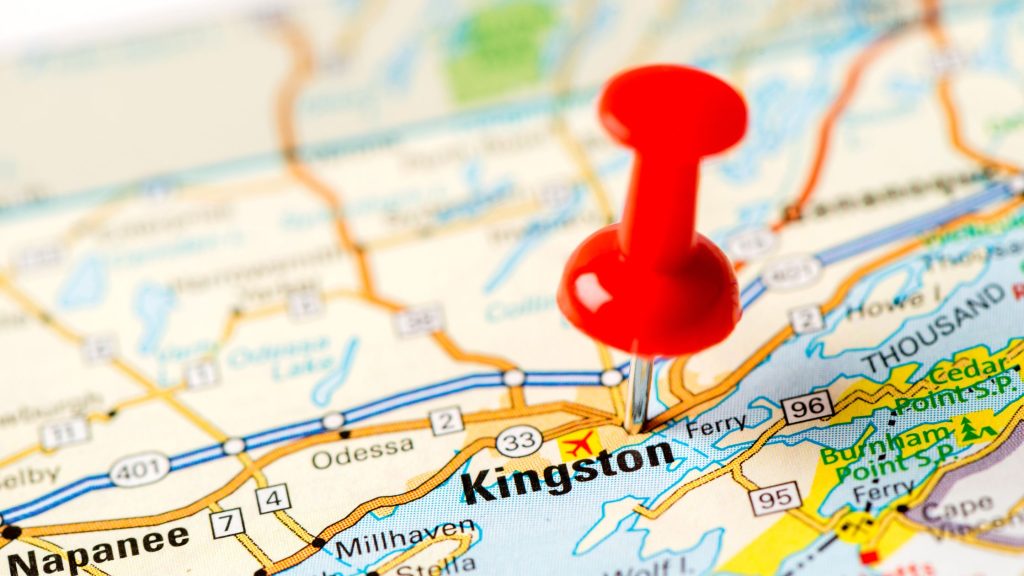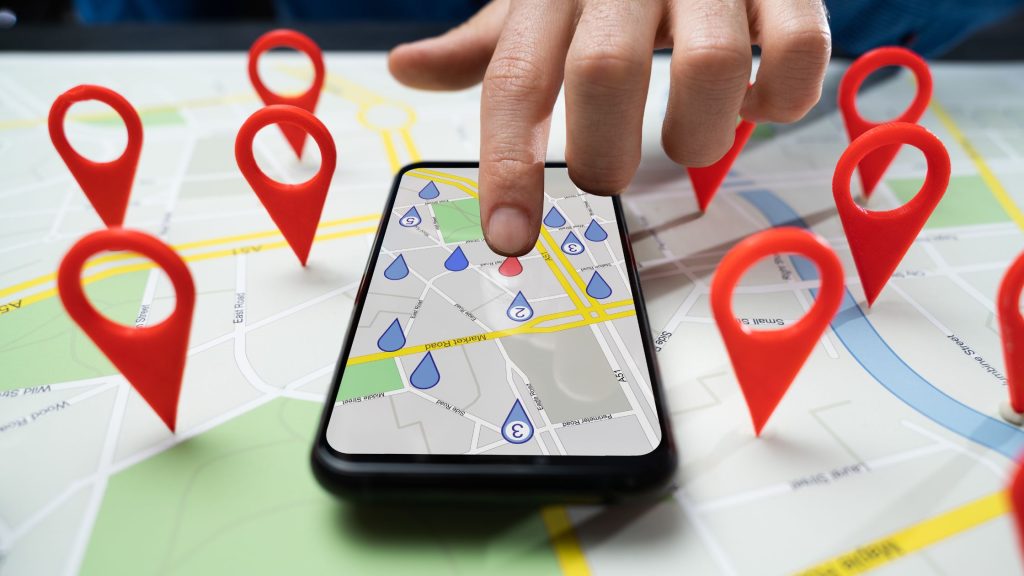5 SEO Tips to Get Your Business to Rank Higher on Google
In today’s competitive digital landscape, having a strong online presence is critical for the success of any local business. But, with so many companies competing for the top spot on search engine results pages (SERPs), getting your business to rank higher on Google can be challenging. This is where Search Engine Optimization (SEO) comes into play. By implementing the right SEO strategies, you can improve your visibility, attract more local customers, and increase your sales. In this blog, we’ll explore five actionable SEO tips tailored specifically to help local businesses rank higher on Google.

1. Optimize for Location-Specific Keywords
One of the most important SEO strategies for local businesses is optimizing your website content with location-specific keywords. When people search for a service or product in a particular area, they tend to include location-related terms in their queries. For example, someone searching for a plumber in Kingston, Ontario, is likely to type in “plumber in Kingston” or “plumbing services Kingston.”
How to implement location-specific keyword optimization:
- Keyword Research: Start by researching the keywords that your potential customers are using to find businesses like yours in your area. Use tools like Google Keyword Planner, Ahrefs, or SEMrush to identify popular search terms related to your business and location.
- Incorporate Keywords Naturally: Once you have a list of relevant location-specific keywords, incorporate them naturally into your website content, such as service pages, blog posts, product descriptions, and meta tags. Avoid keyword stuffing, which can harm your rankings. Instead, focus on writing clear and informative content that speaks to your audience.
- Location Pages: If your business serves multiple locations, create dedicated pages for each area. For example, if you’re a bakery with branches in different cities, each location should have its own page (e.g., “Bakery in Toronto” and “Bakery in Kingston”). This allows you to optimize each page for the relevant location, improving your chances of ranking higher in local searches.
- Include Location in Meta Titles and Descriptions: Your meta title and description are essential elements that influence your ranking on Google. Make sure to include your location in both to signal to search engines that your business operates in a specific area. For example, “Best Bakery in Kingston, Ontario | Freshly Baked Goods Daily.”

2. Claim and Optimize Your Google Business Profile
Google Business Profile is a crucial tool for local SEO. Claiming and optimizing your Google Business Profile listing is one of the easiest and most effective ways to improve your local visibility on Google.
Steps to claim and optimize your Google Business Profile:
- Claim Your Business Profile: If you haven’t already, go to your Google Business Profile and claim your listing. Verify your business, as this will allow you to manage and update the information that appears on Google Maps and local search results.
- Complete Your Profile: Fill out all the relevant details in your profile, including your business name, address, phone number (NAP), business hours, and a detailed description of your services. Make sure the information is accurate and consistent across your website and other online platforms.
- Add High-Quality Photos: Visual content plays an important role in attracting customers to your business. Upload high-quality images of your business, products, or services, as well as your location. Photos give potential customers a sense of what to expect and can increase engagement with your listing.
- Encourage Customer Reviews: Reviews not only influence consumer behavior but also play a role in local SEO rankings. Encourage satisfied customers to leave positive reviews on your Google Business Profile. Respond to reviews—both positive and negative—to show that you value customer feedback and are actively engaged with your audience.
- Use the Google Posts Feature: Google allows businesses to publish short posts directly to their Google Business Profile. You can use this feature to promote offers, events, or updates. This content can help keep your profile fresh and attract more clicks from users.

3. Build and Optimize Local Citations
Local citations refer to mentions of your business’s name, address, and phone number (NAP) across the web, such as on local directories, social media platforms, and other websites. These citations help establish your business’s legitimacy and boost your local search rankings.
Tips for building and optimizing local citations:
- Consistency is Key: Ensure that your business’s NAP information is consistent across all online platforms, including your website, social media profiles, and online directories. Inconsistent information can confuse search engines and hurt your rankings.
- Submit Your Business to Local Directories: List your business on local directories and industry-specific platforms. Examples include Yelp, Yellow Pages, Bing Places, and Foursquare. Be sure to use the same NAP information for every listing.
- Check for Duplicate Listings: Duplicates or outdated listings can negatively impact your SEO efforts. Regularly audit your citations to ensure that your business is listed correctly and that there are no conflicting entries.
- Use Structured Data Markup: Adding schema markup (structured data) to your website helps search engines understand your business’s location and services. You can use tools like Google’s Structured Data Markup Helper to implement local business schema, which may lead to rich snippets appearing in search results.

4. Create Locally Focused Content
Creating high-quality content that resonates with your local audience is another key component of an effective local SEO strategy. Not only does this help you attract local customers, but it also signals to Google that your business is relevant to the area in which you operate.
Strategies for creating locally focused content:
- Blog About Local Topics: Write blog posts that are specifically tailored to your local community. For example, if you own a restaurant, you could write about food trends in your area, or if you run a retail store, you could highlight local events or shopping guides for your city. This type of content appeals to local users and is more likely to attract backlinks from other local websites.
- Use Hyper-Local Keywords: In addition to broad location keywords, consider using hyper-local keywords that target specific neighborhoods, landmarks, or areas of interest near your business. For example, instead of just targeting “Plumber in Chicago,” you could target “Plumber near Lincoln Park Chicago.”
- Create Location-Specific Landing Pages: If your business operates in multiple areas, create landing pages that are tailored to each location. Each page should feature unique content about the services or products you offer in that area, including local keywords and information about the neighborhood or city.
- Highlight Local Events and Partnerships: Partner with local organizations or events and create content around those partnerships. For example, you could sponsor a community event and write a blog post about it. Not only does this demonstrate your involvement in the community, but it can also result in valuable backlinks to your website.

5. Build High-Quality Local Backlinks
Backlinks (links from other websites to your website) are an essential ranking factor in SEO, and earning high-quality backlinks from local websites can give your business a significant boost in local search results.
How to build high-quality local backlinks:
- Reach Out to Local Media Outlets: Local news websites, blogs, and publications are great sources for earning high-quality backlinks. If your business has a newsworthy event or accomplishment, reach out to local journalists or submit a press release.
- Partner with Local Businesses: Form partnerships with other local businesses and request backlinks from their websites. For example, you could collaborate on a joint promotion or event and have each business link to the other’s website.
- Sponsor Local Events or Charities: Sponsoring local events or charities can lead to backlinks from their websites, which are often authoritative in your local area. Not only does this improve your SEO, but it also helps you build positive brand awareness within the community.
- Submit Guest Posts to Local Blogs: Many local blogs accept guest contributions. By writing helpful, informative articles for local blogs, you can gain valuable backlinks while reaching a broader local audience.
- Get Listed in Local Business Awards and Directories: Winning or being nominated for local business awards can also lead to backlinks from the awarding organizations. Similarly, being listed in reputable local business directories can provide quality backlinks to your site.

Final Thoughts
Getting your business to rank higher on Google requires a multi-faceted approach, but by focusing on local SEO, you can significantly improve your visibility to potential customers in your area. From optimizing for location-specific keywords to building local backlinks, these five SEO tips provide a solid foundation for local businesses looking to dominate local search results.
Remember, SEO is not a one-time effort but a continuous process that requires regular monitoring and adjustments. Stay up-to-date with the latest SEO trends and algorithms, and consistently refine your strategies to stay ahead of the competition. By implementing these actionable tips, your business will be well on its way to climbing the Google rankings and attracting more local customers.
Categories
Latest Articles
Stay up to date
with news and
educational information
[hubspot type=”form” portal=”5213843″ id=”b19f3e1c-0beb-4946-9d04-2bb47dfa17e0″]











Leave a Comment
You must be logged in to post a comment.